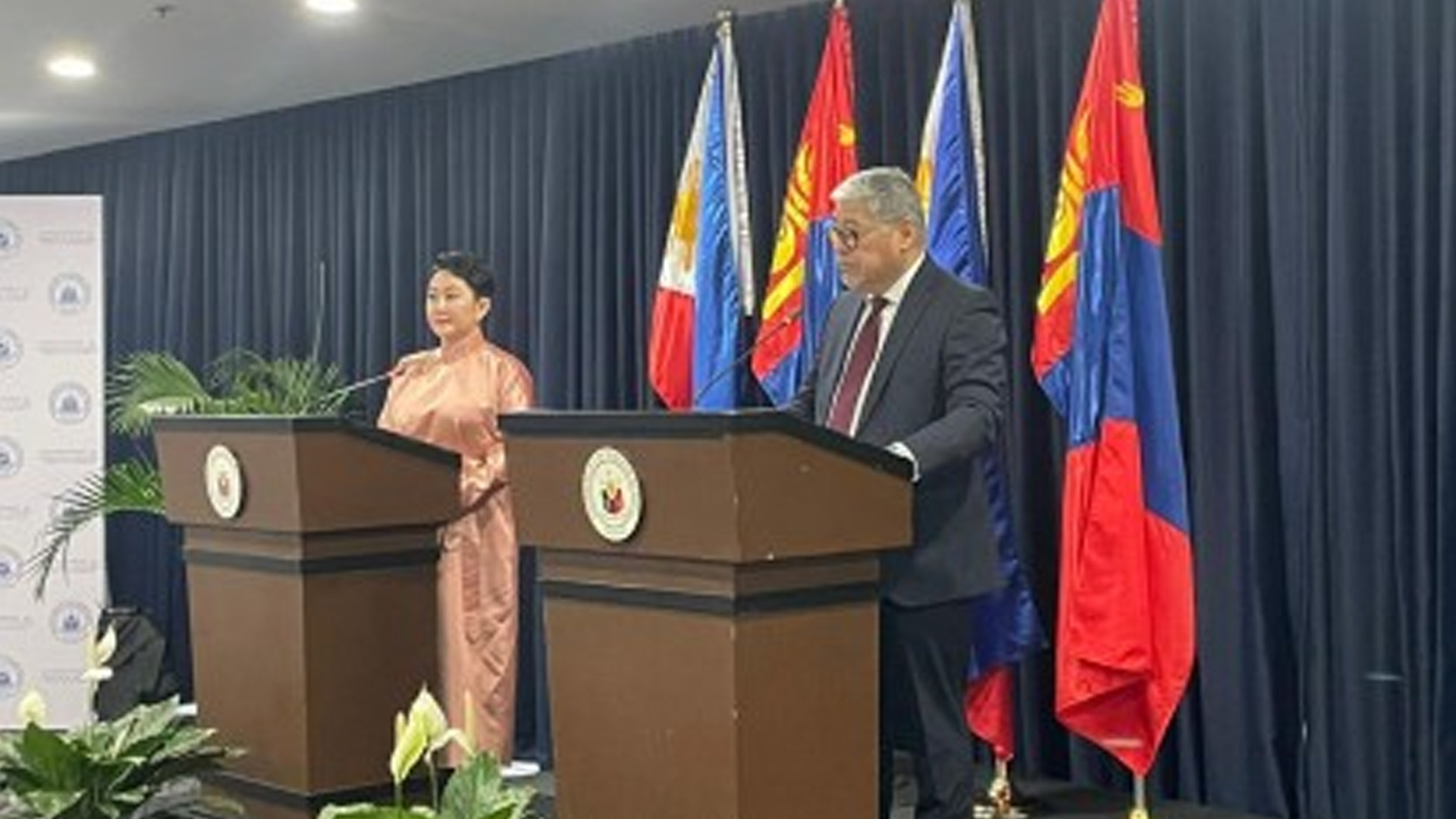The Philippines and Mongolia strengthened their economic and strategic partnership in a historic visit by Mongolian Foreign Minister Batmunkh Battsetseg on Monday, after over four decades.
In his speech on Monday, Foreign Affairs Secretary Enrique Manalo described the visit as a milestone in the Philippines-Mongolia relationship, noting the productive bilateral meeting with Battsetseg, that led to the issuance of the two nations’ first bilateral statement since 2000.
Battsetseg also paid a courtesy call on President Ferdinand R. Marcos Jr.
“The Philippines and Mongolia are two of the fastest-growing economies not only in Asia but in the world. The future of our bilateral partnership finds strength in our two resource-rich economies,” Manalo said.
“As middle-income countries, we share an interest in pursuing cooperation to sustain our promising development trajectories,” he added.
In a joint statement, Manalo and Battsetseg reaffirmed the enduring bonds of friendship between the Philippines and Mongolia, emphasizing that bilateral ties are founded on a shared commitment to peaceful coexistence and mutually beneficial cooperation.
The two officials also highlighted common values such as freedom, democracy and human rights, as they stressed the importance of an open, inclusive and rules-based international order grounded in international law, equity and justice.
The two sides agreed to advance cooperation in trade and investment, food security, English language training and regional security.
“The Secretary and the Minister reaffirmed their shared commitment to strengthening trade and investment ties by fostering sustainable economic growth and private sector collaboration, while advancing comprehensive trade cooperation, expanding trade volume, and promoting mutually beneficial market access,” the joint statement read.
Both nations expressed satisfaction with the progress on a memorandum of understanding on agricultural cooperation that aligns with the priorities of both President Marcos and Mongolian President Ukhnaa Khurelsukh, who have each declared food security as a national agenda.
Meanwhile, recognizing Mongolia’s designation of English as its second official language, the Philippines launched a pilot program for Mongolian civil servants and rural officials to study English in the Philippines, to be organized by the Technical Cooperation Council of the Philippines and Technical Education and Skills Development Authority.
Labor cooperation also featured prominently in the discussions, as Manalo thanked the Mongolian government for ensuring the protection of the rights and welfare of around 500 Filipino workers in Mongolia.
“I discussed with her our desire to forge cooperative frameworks that will better protect Filipinos in Mongolia,” he said.
The two countries identified potential cooperation in tourism, science and innovation, disaster risk reduction, and defense.
On regional security, they reaffirmed their commitment to international law, particularly the 1982 United Nations Convention on the Law of the Sea (UNCLOS), and underscored the importance of the 1982 Manila Declaration on the Peaceful Settlement of Disputes.
The Philippines and Mongolia noted their shared vision of a world free of nuclear weapons as they advance regional security and global disarmament goals.
“The two sides decided to continue cooperating to promote nuclear weapons-free zones in the context of the review process of the Treaty on the Non-Proliferation of Nuclear Weapons,” the joint statement read.
Mongolia expressed strong interest in becoming a Sectoral Dialogue Partner of the Association of Southeast Asian Nations, a move supported by the Philippines. In turn, Mongolia backed the Philippines’ bid for a non-permanent seat at the UN Security Council for 2027–2028.
Both sides emphasized the importance of collective action to address climate change, focusing on building resilience and prioritizing disaster risk reduction, while the Philippines expressed its full support for Mongolia’s hosting of the 17th Session of the Conference of the Parties of the UN Convention to Combat Desertification, to be held in Ulaanbaatar in 2026. (PNA)







